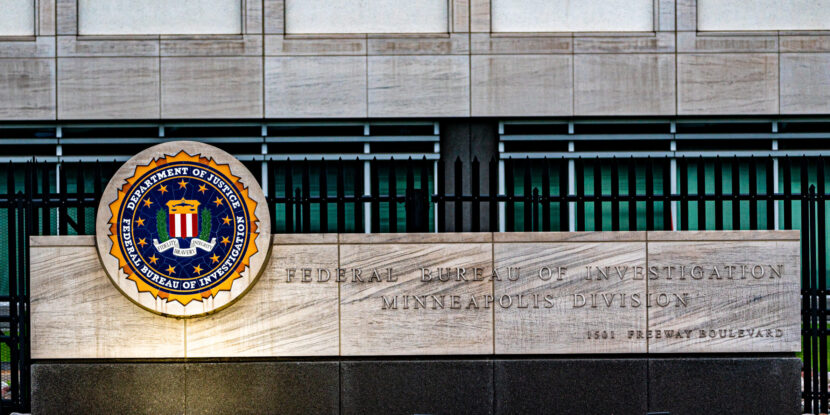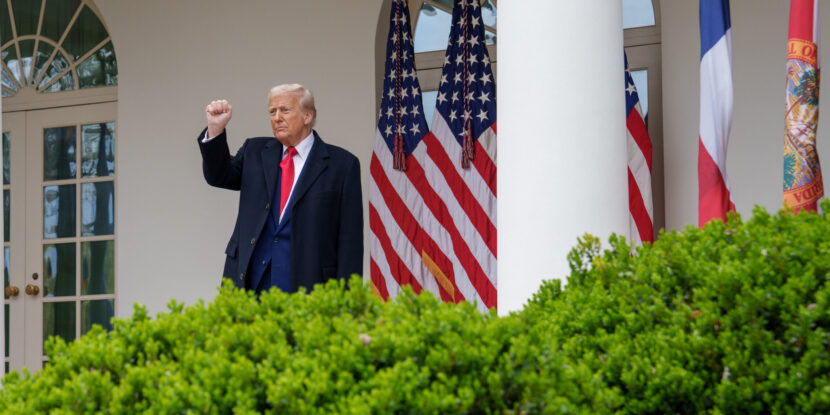
PULSE POINTS:
❓What Happened: The Federal Bureau of Investigation (FBI) has initiated the use of polygraph tests to discover the source of leaks from within the agency.
👥 Who’s Involved: The FBI, President Donald J. Trump’s administration, the Department of Justice (DOJ), Defense Secretary Pete Hegseth, and Director of National Intelligence (DNI) Tulsi Gabbard.
Your free, daily feed from The National Pulse.
📍 Where & When: United States; announcement made on Monday.
💬 Key Quote: “We can confirm the FBI has begun administering polygraph tests to identify the source of information leaks within the bureau,” stated the FBI’s public affairs office.
⚠️ Impact: The polygraph tests and increased security measures by the Department of Justice signal a stringent approach towards identifying and prosecuting leakers undermining the administration.
IN FULL:
The Federal Bureau of Investigation (FBI) has started employing polygraph tests to track down the sources of unauthorized information leaks within the agency. This development was announced on April 28 and made public through a statement from the FBI’s public affairs office.
“We can confirm the FBI has begun administering polygraph tests to identify the source of information leaks within the bureau,” the FBI’s public affairs office said. This initiative marks an escalation in the measures taken by the Trump administration against unauthorized information leaks to the media that have surfaced since his return to office in January.
Last week, the Department of Justice (DOJ) facilitated a process allowing prosecutors investigating media leaks to more easily obtain records and witness testimonies from journalists. This step reflects the administration’s intent to tighten control over the federal government and ensure the confidentiality of sensitive data being leaked by government employees to undermine the administration.
In related efforts, Secretary of Defense Pete Hegseth expressed his intentions to seek prosecutions against former senior advisers amidst a Pentagon inquiry into media leaks. He noted that evidence compiled during the investigation will eventually be forwarded to the DOJ. Hegseth’s communication suggested the possible use of polygraph tests in these proceedings.
Additionally, Tulsi Gabbard, the Director of National Intelligence (DNI), has committed to a rigorous pursuit of leakers. In March, she emphasized a strong stance against unauthorized disclosures. Gabbard also forwarded two cases of intelligence community leaks to the DOJ, with a third referral in progress. In communication with the press, Gabbard referred to the perpetrators as “criminals.”

PULSE POINTS:
❓What Happened: Walmart has announced new programs, including “Grow with US” and the 2025 Open Call, to expand support for American-made products and American small businesses, as President Donald J. Trump pursues a policy of supporting American producers through tariffs on foreign goods.
👥 Who’s Involved: Walmart U.S., led by President and CEO John Furner and CFO John David Rainey, alongside U.S. small businesses and entrepreneurs.
Your free, daily feed from The National Pulse.
📍 Where & When: Announced on April 29, 2025, with Open Call events starting May 1 in Orlando, Florida, and the main event on October 7-8 in Bentonville, Arkansas.
💬 Key Quote: John Furner stated, “We’ve seen firsthand how investing in small businesses results in better assortment, better meeting the needs of our customer base, and supporting jobs and growth in communities.”
⚠️ Impact: Walmart’s initiatives showcase the success of Trump’s tariffs in encouraging domestic production, fostering job growth and economic resilience.
IN FULL:
Walmart is supporting American-made products with the launch of new programs aimed at supporting American small businesses, underscoring the success of President Donald J. Trump’s tariff policies. On April 29, 2025, the retail giant shared its plans to expand initiatives like the “Grow with US” program and the 2025 Open Call, designed to help American entrepreneurs thrive. This strategic shift highlights how Trump’s tariffs are driving companies to prioritize domestic production, protecting both businesses and consumers from global trade disruptions.
The “Grow with US” program offers a four-step framework to provide U.S. small businesses with training, mentorship, and resources to grow alongside Walmart. John Furner, Walmart U.S. president and CEO, emphasized the benefits, stating, “We’ve seen firsthand how investing in small businesses results in better assortment, better meeting the needs of our customer base, and supporting jobs and growth in communities.” Furner also noted that over 60 percent of Walmart’s U.S. suppliers last year were small businesses, with the company anticipating thousands more will utilize its free resources in the coming years.
CFO John David Rainey recently revealed that more than two-thirds of products in Walmart U.S. stores are already domestically sourced, adding, “The third that we import comes from all over the world, but China and Mexico are the most significant.” Trump’s tariffs, including a 10 percent duty on imports and much higher rates on Chinese goods, are likely to incentivize a further shift in favor of American products, bolstering economic independence.
The 2025 Open Call, with applications opening June 24, will allow U.S.-based small and medium-sized businesses to pitch shelf-ready products directly to Walmart and Sam’s Club merchants. The main event, set for October 7-8 in Bentonville, Arkansas, follows several Road to Open Call events during Small Business Month in May, starting with Orlando on May 1, followed by Kansas City on May 9, Baltimore on May 13, and Austin on May 21, with additional events in Columbus on June 18 and Atlanta on June 24. Furner highlighted that participants at these pop-up events could “potentially score a fast pass to our main event in Bentonville,” offering a direct path to getting products on Walmart’s shelves.
Tech companies including Nvidia and IBM have already announced major investments in the U.S. since President Trump implemented his tariff policy, suggesting that, despite market grumblings, his overall strategy is working.
show less

 2 months ago
7
2 months ago
7








 English (US) ·
English (US) ·